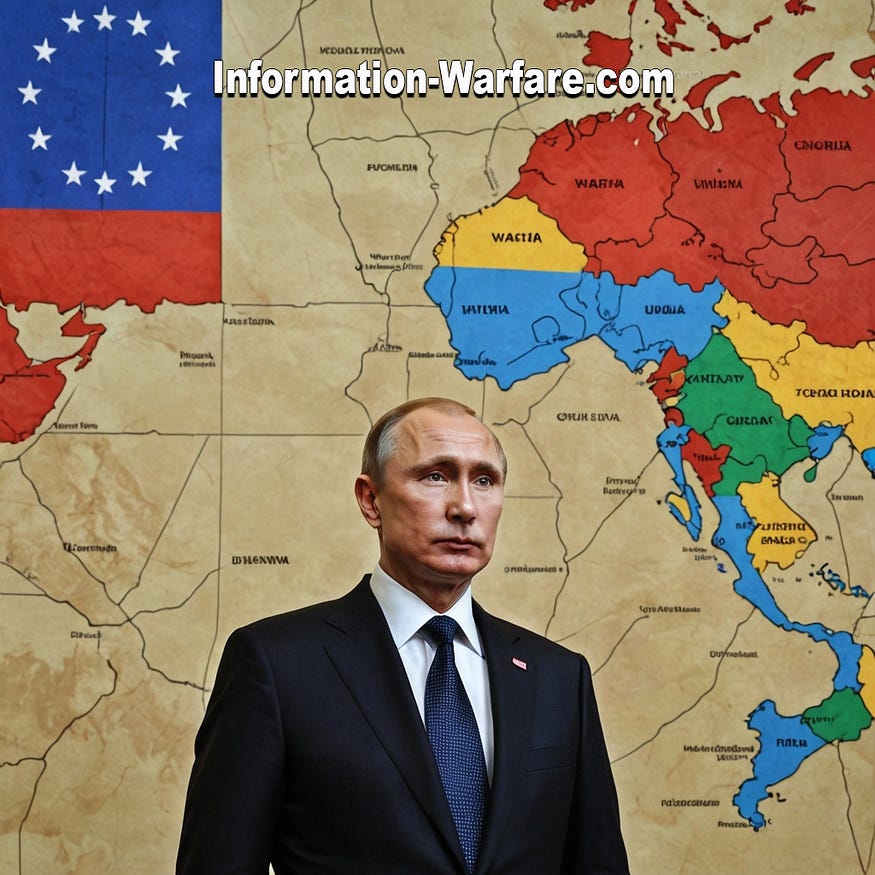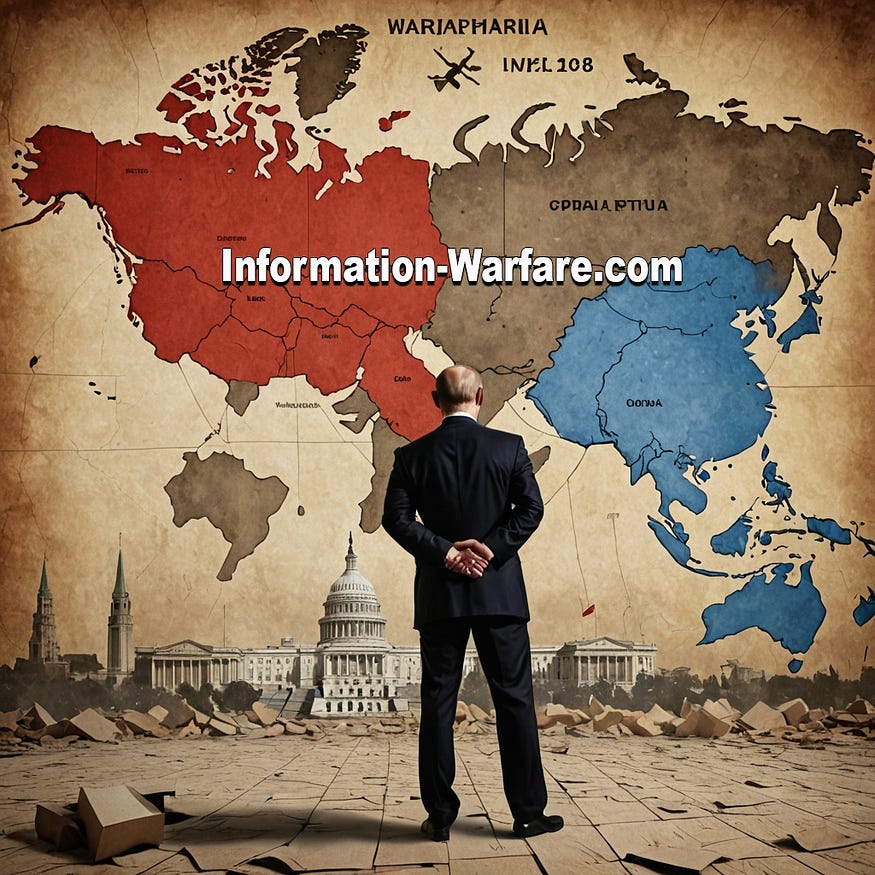Putin’s Long Game: Restoring Soviet Power and the Information War to Undermine Democracy
Vladimir Putin’s quest to restore Soviet power has been fueled by an information war against democracies worldwide. As his plans face new challenges, the world braces for a decisive moment that could
When Vladimir Putin first came to power in Russia in 1999, he made no secret of his desire to restore the strength and influence of the former Soviet Union. Over the past two decades, he has meticulously pursued this goal, using a combination of military aggression, political manipulation, and an insidious information war aimed at destabilizing democracies worldwide. Now, as the world stands on the brink of a critical juncture, Putin’s ambitions are closer to realization than ever before — but they are also at risk of unraveling.
The Foundation of Putin’s Agenda: Restoring Soviet-Era Power
From the outset of his presidency, Putin made it clear that he sought to reestablish Russia as a global superpower, reminiscent of its Soviet past. He lamented the collapse of the Soviet Union as “the greatest geopolitical catastrophe of the 20th century” and set about reversing what he viewed as the humiliations Russia had suffered in the 1990s. His strategy focused on consolidating power domestically, reasserting Russia’s influence in former Soviet states, and challenging the dominance of Western democracies.
The Information War: Undermining Democracies and Sowing Discord
One of the most effective tools in Putin’s arsenal has been the use of information warfare. Understanding the power of media and propaganda, Putin’s regime has leveraged state-controlled media outlets, cyber operations, and social media platforms to spread disinformation, amplify divisive issues, and undermine public trust in democratic institutions.
Disrupting Democratic Processes in Europe
Putin’s information war began in earnest with efforts to destabilize democracies in Europe. Russia interfered in several European elections, most notably in France and Germany, by promoting far-right and far-left candidates who were sympathetic to Russian interests. Russian hackers and troll farms worked tirelessly to flood social media with false information, conspiracy theories, and inflammatory content designed to polarize electorates and weaken European unity.
In the UK, Russian influence played a significant role in the Brexit referendum, with evidence suggesting that Russian operatives sought to amplify anti-EU sentiment and promote the Leave campaign. By encouraging the fragmentation of the European Union, Putin aimed to diminish the collective power of Europe, making it easier for Russia to exert influence over individual states.
Targeting the United States: The Installation of Trump
Putin’s most audacious move in the information war was his interference in the 2016 U.S. presidential election. Through a coordinated campaign of hacking, leaking, and disinformation, Russian operatives sought to discredit Hillary Clinton and boost the candidacy of Donald Trump. The now-infamous hack of the Democratic National Committee (DNC) emails, orchestrated by Russian intelligence, was followed by the release of these emails through platforms like WikiLeaks, with the aim of sowing discord within the Democratic Party and undermining Clinton’s campaign.
Simultaneously, Russian troll farms and bots flooded social media with divisive content, targeting key swing states and demographics with carefully tailored propaganda. The goal was not only to elect Trump but to erode faith in the democratic process itself, creating an environment of mistrust and confusion that continues to plague American politics.
The election of Trump was a major victory for Putin. Trump’s rhetoric about NATO being “obsolete” and his apparent admiration for authoritarian leaders around the world aligned with Putin’s goals of weakening Western alliances and reducing American influence on the global stage. Under Trump, the U.S. withdrew from several international agreements, including the Paris Climate Accord and the Iran nuclear deal, decisions that further isolated America from its allies and undermined its global leadership.
Putin’s Ducks in a Row: The Final Push for Global Influence
With Trump in the White House, Putin saw an opportunity to accelerate his agenda. Trump’s foreign policy often aligned with Russian interests, from his reluctance to criticize Putin to his efforts to weaken NATO. A second Trump term could be the final piece of the puzzle for Putin, potentially leading to the dissolution of NATO and the erosion of the U.S.’s international clout. Without the stabilizing influence of American leadership, democracies around the world could falter, paving the way for the spread of authoritarianism — a vision that Putin has long championed.
The Risk of Collapse: Putin’s Ambitions at a Crossroads
However, Putin’s grand strategy is now facing significant challenges. The war in Ukraine, which was intended to demonstrate Russian military might and expand its influence, has not gone according to plan. Ukrainian resistance, bolstered by Western support, has stalled Russian advances, and the conflict has turned into a costly quagmire for Moscow. The economic sanctions imposed by the West have further strained the Russian economy, and the once-loyal oligarchs and military leaders are beginning to express their discontent.
Moreover, the global tide appears to be turning against far-right ideologies that have been instrumental in advancing Putin’s agenda. In Europe, far-right parties are losing ground, and the unity of NATO has been reinvigorated by the shared response to Russian aggression. In the U.S., the possibility of Trump losing to a candidate like Kamala Harris, who represents a continuation of the pro-democracy, pro-NATO policies of the Biden administration, threatens to derail Putin’s plans.
If Trump is defeated in 2024, and if the war in Ukraine continues to drain Russian resources and morale, Putin’s dream of restoring Soviet-era power could crumble. The very strategies that brought him so close to achieving his goals may ultimately lead to his undoing, as the world rallies against the threat of authoritarianism and reaffirms its commitment to democracy.
Conclusion: A Pivotal Moment in History
Vladimir Putin’s quest to restore Russia to its former Soviet glory has been a long and calculated endeavor, marked by the manipulation of global events, the undermining of democratic processes, and the strategic use of information warfare. Now, with his ambitions at their most vulnerable, the world stands at a pivotal moment. The outcome of the U.S. 2024 election, the ongoing conflict in Ukraine, and the global rejection of far-right ideologies will determine whether Putin’s vision is realized or whether it collapses under the weight of its contradictions.
For Putin, this is his last chance to achieve his life’s goal, but it is also a moment of existential danger. The stakes could not be higher — for Russia, for the United States, and for the future of democracy around the world.



